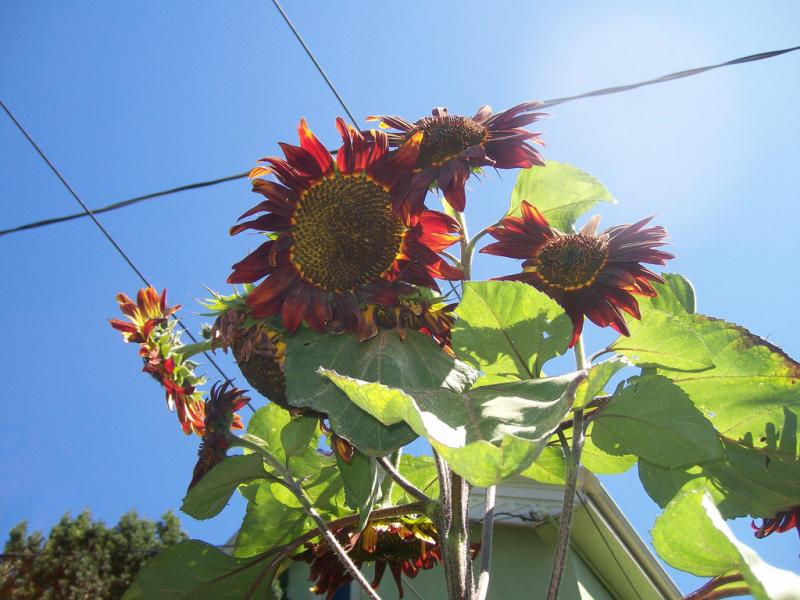Question: "I would like to start a vegetable garden, but I live in an apartment and don't have yard space. My neighbor a few blocks down has a huge front yard and she offered to let me grow vegetables there. Are there any legal or other issues we should think about?" – Dania M.
It is wonderful that you and your neighbor have joined the movement of people
sharing yard space to grow food. Yard-sharing has many benefits, from access to fresh food to stronger neighborhood connections to environmental sustainability. But there are also potential pitfalls to sharing a garden, which you can avoid by discussing them early on with your neighbor.
Share Expectations
The first step is to discuss your expectations — this will prevent most potential conflicts or legal problems. You might start by talking through the following questions with your neighbor:
-
What will you grow? Who gets to eat the vegetables?
-
What should the garden look like and what will make it aesthetically pleasing?
-
During what hours may you come to work on the garden?
-
May you bring friends to work in the garden with you?
-
Who will care for the garden when you are away?
-
What happens if the garden is neglected?
-
Where will gardening supplies be stored?
-
Who pays for the water?
-
Will the garden be organic or can certain chemicals be used?
The Exit Plan
When you begin sharing, it’s also important to know in advance how you will stop sharing. Here are some questions to discuss:
-
Will the arrangement be indefinite, for a defined period, or will you agree to reassess after the first season?
-
Under what circumstances might you or your neighbor want to end the arrangement and how much notice must you give?
-
Will you restore the yard to its original state if you end the arrangement? If you construct raised beds and bring in soil, will you leave those or take them with you?
Risk and Liability
Many homeowners worry about liability when they invite others onto their property. That’s why it’s critical for you and your neighbor to discuss how you can reduce the risk that someone will be injured.
To start, make a list of ways someone could get injured (everything from stepping on a rake or being struck by a falling branch) and strategize about prevention. Then discuss who you want to be liable in the event that someone is injured. Your state’s recreational use statute might protect your neighbor from liability, though it’s not clear whether such laws would apply to all garden-sharing arrangements.
Your neighbor may want you to sign a liability waiver agreeing that you will not sue her. Or, to the extent that your neighbor feels she is benefiting from your gardening activity, she may be happy to take the risk and rely on the likelihood that her homeowners insurance will cover the cost of a gardening-related injury.
Potential Legal Barriers
The primary legal barrier to your plan may be laws or covenants against growing vegetables in the front yard—unfortunately, some city landscaping ordinances or homeowners associations (HOA) try to prevent the appearance of blight and overgrowth by requiring you to have low-lying groundcover or neatly trimmed shrubs.
To find out whether you are subject to such a regulation, you can check your city’s landscape ordinance or call your city. You can also take a look at the rules governing the use of your neighbor’s property, often found in a document called the Declaration of the Covenants, Conditions, and Restrictions (CC&Rs).
Another way to find out is to plant the vegetables, then wait and see if the city or HOA can be bothered to ask you to remove them. This approach comes with some risk—some cities have threatened to fine residents up to $1,000 for landscaping violations that go uncorrected, and HOAs can do the same. It’s unlikely, but still possible.
If your city or HOA does have such a rule and insists on enforcing it, perhaps you could organize a “give peas a chance” campaign and advocate to have the rule changed, like residents of Sacramento did.
After all, such rules are archaic and predate our society’s growing awareness of problems such as farmland depletion, the carbon footprint of industrial agriculture, and other concerns about food security. People everywhere have decided to grow
food, not lawns!
One More Thing…
If you are thinking about selling the vegetables you grow, there is a long list of other legal issues to research. It’s not impossible, but it will open a legal and regulatory can of worms for both you and your neighbor. Best to keep the arrangement simple, so that the only can of worms you have to open is your compost bin.
Please note that this is not legal advice: This column provides information about sharing and related legal issues. Legal information is not the same as legal advice, which is tailored to an individual's specific circumstances and relies on the lawyer knowing all the relevant facts. This column is not legal advice.
Janelle Orsi
Janelle Orsi is the Director of the national nonprofit Sustainable Economies Law Center, and she is a "sharing lawyer" in private law practice…
More from Janelle Orsi
